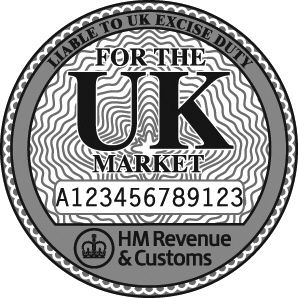
By Andy Mullineux, Emeritus Professor of Financial Economics, Centre for Responsible Business and CHASM
So-called ‘sin taxes’ are controversial, given the addictive nature of the underlying consumption, and are opposed by libertarians. Moreover, hypothecation to fund the NHS and treatment of the associated addictions might further increase their acceptability.
The new Alcohol Duty regime, which came into force on 1 August in the UK, charges higher rates of duty for drinks with more alcohol by volume (ABV). As with the tobacco products, a 20% value added tax (VAT) is paid on the sum of the product’s price and the duty. Alcohol duty is raised annually in line with inflation, except when the government introduces freezes, as it did between autumn 2020 and 1 August 2023 for alcohol. The Tobacco Products Duty was raised from 15 March in line with an agreed escalator of 2% above inflation.
Consumption taxation such as these can be used to try to influence consumer behaviour with a view to promoting health and reducing the costs to the NHS of treating alcohol- and smoking-related diseases. They also raise revenue that could be hypothecated for the NHS.
Gambling, like drinking, is also regarded by some as a ‘sin’ but is exempt from VAT and income tax on winnings. There is also no special gambling or betting duty in the UK. There are taxes on the act of gambling and winnings in other countries, including the US. But UK governments have feared losing revenue from taxing gambling service providers and driving them offshore into internet gambling.
The Soft Drinks Industry Levy, or ‘sugar tax’, was introduced on April 2018 with the aim of reducing obesity, especially amongst children, and reducing the growing costs to the NHS of treating associated illnesses. While soft drink producers may pass some of the costs on to consumers, there is no special duty on consumption, and so the behavioural impact may be diluted.
These so-called ‘sin taxes’ are controversial, given the addictive nature of the underlying consumption, and are opposed by libertarians. Moreover, hypothecation to fund the NHS and treatment of the associated addictions might further increase their acceptability.
Consumer taxes are also used more widely to influence public behaviour, reduce the cost of living and promote various activities. Food and drink, for example, is zero-rated for VAT. Like gambling, physical sports and leisure, culture, charities, welfare, health and education are exempt from VAT, and, more controversially, so are financial services. Baby and children’s clothes are also zero-rated, as are mains water usage and the installation of heat pumps, among other things, while household power and heating are rated at just 5% for VAT.
Car fuel duty is 52.95p per litre with 20% VAT charged on the fuel price with duty added. The inflation index-linking of the duty has been stopped since 2011, when it was reduced by 1p per litre, and there was a further 5p reduction for 2022-3 that was supposed to be temporary but has been extended to 2023-4. The pump price consists of around 50% tax. Like clean air charges in various cities, including Birmingham (Clean Air Zone) and London (Ultra Low Emissions Zone or ULEZ, and the central Congestion Charge), the aim is to discourage unnecessary or excessive vehicle usage to promote health.
These charges are controversial because what a household or business considers necessary depends on its circumstances and how good (and affordable) alternative public transport and cycle lanes are. Also, the benefits are often reaped by others, including children. While there is general support for action to tackle climate change and achieve ‘net zero’ carbon emissions, there is less willingness to make personal sacrifices or suffer inconveniences that may be required to reduce carbon emissions.
To reduce resistance, revenues raised from charges on car usage (including fuel duty) could be used to fund more generous vehicle ‘scrappage schemes’, as in London following the Uxbridge election backlash against extending ULEZ. Government fuel duty revenue could also be used to provide subsidies encouraging the switch to electric vehicles, and perhaps also to promote the installation of heat pumps and other green technologies.
At present, the UK operates a carbon Emissions Trading Scheme, introduced in 2021, that puts a price on emitting carbon. Large industrial entities and electricity generators receive allowances to cover some of their emissions. The aim is to reduce these allowances over time to provide an incentive to cut emissions. Unused allowances can be traded, and this helps establish the price of carbon.
To the extent that business-related carbon ‘taxation’ is passed on to consumers – through the supply chain and to the point of sale and beyond – it may affect their consumption behaviour. But a carbon emissions-related duty paid directly by consumers, perhaps related to recycling costs, seems more likely to influence their behaviour. A similar case could be made for special duties on gambling and sugar-added drink consumption.
In the midst of a ‘cost of living crisis’, some members of the public do not seem willing to bear the additional costs of fighting global heating. But oil and gas prices, boosted by the Ukraine war, are descending from their peaks. This presents an opportunity to reduce household energy bill assistance and to raise car fuel duty, at least in line with inflation, so that carbon consumption though energy and fuel usage is taxed at a rate that encourages economy of usage, and thereby helps contain carbon emissions.
- More about Emeritus Professor Andrew Mullineux at the University of Birmingham
- Back to Business School Blog
The views and opinions expressed in this article are those of the author and do not necessarily reflect the official policy or position of the University of Birmingham.
